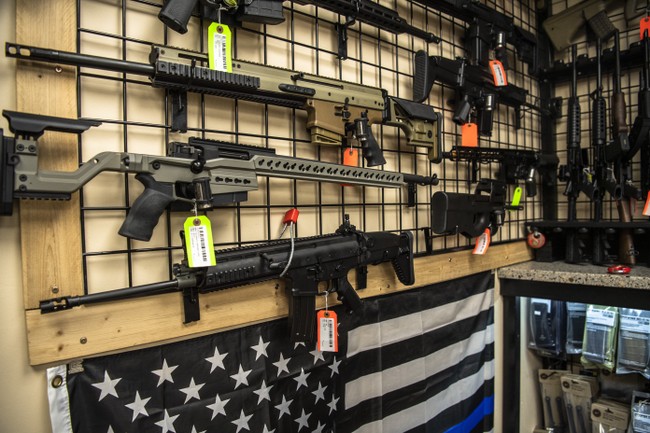
The ATF is like most other bureaucracies. It exists primarily to expand its own power. Sure, that’s not the official reason for its extistence, but when one looks at how bureaucracies work, this is what the ATF is, in fact, trying to do in pretty much all instances.
Advertisement
They’re not along in this, but it’s a particular problem for an agency that’s official reason for existing is to restrict a constitutionally protected right.
What this means for us, though, is that anything they report needs to be filtered through that lens. Is this true or is this something they felt they needed to believe to be true so as to expand their authority?
Need an example? How about this report, for starters.
More than 68,000 illegally trafficked firearms in the U.S. came through unlicensed dealers who aren’t required to perform background checks over a five-year period, according to new data released Thursday by the Bureau of Alcohol, Tobacco Firearms and Explosives.
That represents 54% of the illegally trafficked firearms in the U.S. between 2017 and 2021, Justice Department officials said. The guns were used in 368 shooting cases, which are harder to investigate because unlicensed dealers aren’t required to keep records of their sales that could allow federal agents to trace the weapon back to the original buyer, said ATF Director Steve Dettelbach.
The report ordered by Attorney General Merrick Garland is the first in-depth analysis of firearm trafficking investigations in more than 20 years. It examined more than 9,700 closed ATF firearm trafficking investigations that began between 2017 and 2021. Firearms trafficking is when guns are purposely moved into the illegal market for a criminal purpose or possession.
The second-highest share of firearm-trafficking cases investigated by ATF was straw purchases, when someone buys a gun for a person who can’t get it legally themselves.
Advertisement
Unsurprisingly, the report found that the majority of these guns ended up in the hands of convicted felons.
However, there are tons of questions about the report that this particular article failed to address. Namely, how did the ATF define an unlicensed dealer and how did they determine whether a gun was intentionally trafficked to the illegal market versus a sale where the original owner was unaware of the criminal status of the buyer.
If it’s just anyone selling more than a couple of guns, we have a problem because sometimes, people sell their collections.
We know the ATF would rather every purchase go through an FFL holder, so it’s in its interests to misrepresent what’s happening so as to present a more terrifying picture to the public. Absent specific definitions, I wouldn’t read anything into this report.
Especially when we already know that illegal dealers as most of us think of them aren’t buying new guns. They’re selling stolen guns they picked up from the thief, and based on the number of shootings the ATF claim were covered in the report, that’s clearly a much bigger issue anyway.
Unless you think that of the tens of thousands of shootings in that same time frame, those 368 are the truly important ones.

